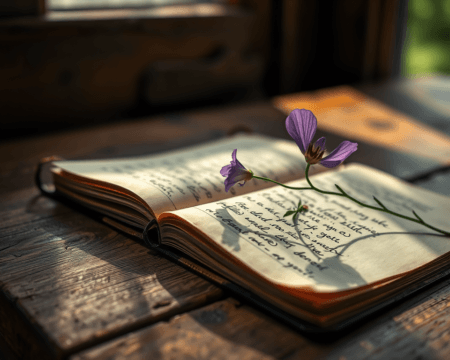I remember a time, not too long ago, when I felt like I was just floating through life, reacting to situations rather than truly engaging with them. It was almost like being in a video game on autopilot. I knew I had the potential for so much more, but it wasn’t until I started actively working on my self-awareness that everything began to change. To say it was a game changer would be an understatement. So if you’re ready to stop just going through the motions and start fully participating in your own life, stick around. I’ll share ten energizing activities that can help you boost your self-awareness like never before.
Key Takeaways
- Daily self-reflection brings clarity; plus, it can set the tone for your whole day.
- Mindfulness meditation is a must; it helps in recognizing your thoughts without judgment.
- Feedback is your friend; seeking it out can illuminate blind spots you never knew existed.
- Active listening builds connections; it’s not just about hearing, it’s about truly understanding.
- Join a community; the support of others can amplify your growth like nothing else.
Engage in Daily Self-Reflection
Self-reflection is like tuning up a guitar before a concert. When you take the time to check in with yourself, you find out what’s working and what’s not. It might sound simple, but a daily practice of self-reflection can lead to incredible personal insights. You can start with just 10-15 minutes of journaling each day.
Benefits of Self-Reflection
The psychological benefits are significant. Not only does it help in personal growth, but it also enhances cognitive development and brings about mental clarity. Maybe it’s because you’re sorting through your thoughts, allowing you to focus better on what truly matters. For me, it’s often the difference between feeling overwhelmed and being at peace.
Techniques for Effective Self-Reflection
You don’t need to have a PhD in psychology to reflect well. Grab a guided journal or simply a blank notebook. Ask yourself thought-provoking questions like:
– What did I do today that made me proud?
– What could I have done differently?
Even structured questions can help you engage with your thoughts better. Trust me, when you start writing it down, you’ll feel that emotional weight lift. Not sure what to write about? Consider looking up journaling prompts online; there are a ton of resources available to spark your creativity.
Practice Mindfulness Meditation
Can we just talk about how incredible mindfulness meditation is for a second? Practicing mindfulness is throwing a life preserver in the chaotic sea of thoughts. This is about becoming aware of your surroundings, your feelings, and your thoughts—all without judgment.
Simple Mindfulness Exercises
Start with simple breathing exercises. Sit quietly, focus on your breath, and let the world fade away for those few minutes. I use apps like Headspace or Calm, which have guided meditations that make it easy. Just a few minutes a day can boost your focus and reduce anxiety. It’s a small investment that pays off big time.
Overcoming Barriers to Mindfulness
Look, I get it. Life gets chaotic, and maintaining a routine can seem impossible. But everyone gets distracted; it’s part of being human. What helps is allocating a specific time each day for mindfulness. Distractions can include thoughts like “I don’t have time for this,” but challenge that narrative. Remember: this practice is a powerful tool for enhancing your self-awareness.
“Mindfulness isn’t about getting lost in the silence; it’s about noticing the noise.”
Seek Feedback from Others
Now, let’s get real for a moment. Asking for feedback can feel like opening a can of worms. But you’ll gain insights that can truly change your perspective. Seeking constructive criticism is essential for growth.
How to Ask for Feedback
Just remember, vulnerability is strength. When asking for feedback, create a safe environment. You might say, “I truly value your opinion. Can you share how I can improve?” People are often more willing to help than you’d think.
Utilizing Feedback Effectively
Once you gather feedback, take time to reflect on it. Use it like a roadmap, steering you towards personal development. This isn’t about feeling attacked but rather, understanding different perspectives and integrating the valuable insights. Emotional intelligence is all about understanding relational dynamics, and trust me, feedback can provide a wealth of knowledge in that area.
Engage in Active Listening
Most people think they’re good listeners, but how often are you actually listening? I mean really listening? Starting conversations with this mindset changes everything.
Techniques to Improve Active Listening
Active listening is about so much more than hearing words; it’s about using techniques like summarizing and engaging with non-verbal cues. When someone’s talking, give them your full attention. Nod occasionally, and ask clarifying questions. You’ll be amazed at how much deeper your connections become.
Challenges of Active Listening
We all deal with distractions and biases that get in the way of truly absorbing what someone else is saying. Confronting those challenges head-on is crucial. Practice mindfulness techniques before diving into important conversations; it sets the stage for deeper focus.
“The best way to connect with someone is to listen as if you don’t want to respond.”
Participate in Group Activities
Getting involved in group activities is a fantastic way to stretch your social awareness. Whether through volunteer work, hobbies, or team sports, these experiences expose you to social dynamics you might not experience alone.
Choosing the Right Group Activities
It’s about finding what excites you. Look for interest-based groups or support networks that align with your passions. Once you put yourself out there, you’ll notice how your self-awareness improves through collective experiences.
Overcoming Social Anxiety in Groups
Venturing into group settings can be daunting, especially if social anxiety creeps in. Start small. It could be as simple as saying hello to someone new or participating in a low-pressure group discussion. Building self-confidence takes time, but exposure brings growth, so give yourself grace throughout the process.
Journaling for Self-Exploration
Journaling isn’t just an exercise; it’s a gateway to incredible self-exploration. Expressive writing allows us to articulate chaotic thoughts, sort through emotions, and find clarity in our lives.
Types of Journaling
You could keep a gratitude journal, jot down mood variations, or even explore bullet journaling, which merges creativity with self-reflection. The idea is to find a style that speaks to you. Whatever the method, writing amplifies emotional processing and enhances self-understanding.
Common Challenges in Journaling
Hey, I know; consistency can be tough. You might hit writer’s block or feel like you need an inspiring setting to make it work. Simplify it. Set a timer for just five minutes and write whatever comes to mind. Remember, this is for you; there are no rules. Find a groove that resonates with you.
Watch Your Body Language
Your body language is a silent communicator. I’m talking about the way you sit, your posture, and even the gestures you make. These non-verbal cues often say way more than words.
Improving Your Body Language Skills
Practicing awareness techniques can enhance your non-verbal communication. Try using a large mirror to observe your gestures and facial expressions when speaking. Adjust your body posture and see how it feels. Believe me, becoming more aware of how you physically communicate will elevate your engagement with others.
Recognizing Body Language in Others
It’s equally essential to recognize body language in others. Essentially, it’s reading the room. Noticing non-verbal signals allows you to react more empathetically, fostering emotional connections that resonate deeply.
Create Personal Development Goals
Aiming for progress without a roadmap is like heading on a road trip without a GPS. Setting specific personal development goals gives you direction and motivation.
Setting Achievable Goals
Make your goals SMART—specific, measurable, achievable, relevant, and time-bound. It could range from something simple like reading one book a month focused on emotional intelligence to more complex goals like completing a course on interpersonal skills. Hold yourself accountable by sharing these goals with others—it makes you less likely to backtrack.
Evaluating Progress
Periodically reflecting on your progress is key. Have regular check-ins with yourself. Use self-assessment techniques and adjust your goals as necessary. It’s all about continuous growth and refining your journey as you go.
Explore Art Therapy Techniques
Let’s switch gears slightly. Engaging in creative activities is a fantastic way to express feelings that words may often fail to capture. Art therapy can be an incredibly enriching method to boost self-awareness.
Activities in Art Therapy
Try your hand at drawing or painting; the process can be therapeutic. Collage making or even simple storytelling through art can foster emotional exploration. Engaging in creativity allows you to reflect on personal experiences while expressing emotions artistically.
Benefits of Art Therapy Approaches
Engaging in artistic creativity can help reduce anxiety while boosting emotional intelligence. You’re exploring your own narrative and recognizing feelings that might otherwise go unnoticed.
Join a Supportive Community
Being part of a community can amplify your growth journey. Surrounding yourself with like-minded individuals offers not just support but also a sense of belonging.
Finding the Right Community
Search for clubs or online forums that resonate with your interests. Connecting with peers who share your goals can be incredibly empowering. It’s the shared experiences that enrich your understanding of both yourself and others.
Challenges in Community Settings
What about overcoming shyness or trust issues? Hey, it’s a process. If initiating conversations feels daunting, practice small talk in everyday situations. Each little interaction will build your confidence over time. Remember, everyone is just as human as you, navigating their own challenges—and you’re not alone in this journey.
| Area | Activity | Benefit |
|---|---|---|
| Self-Reflection | Daily Journaling | Clarity and personal insights |
| Mindfulness | Guided Meditation | Stress reduction and focus |
| Feedback | Seeking Constructive Criticism | Illuminating personal blind spots |
| Active Listening | Engaging Fully in Conversations | Deeper interpersonal connections |
| Group Activities | Social Involvement | Enhanced social engagement |
| Creative Expression | Art Therapy Practices | Improved emotional understanding |
| Community Engagement | Joining Supportive Networks | Building confidence and relational support |
Taking initiative in these areas is the first step. As your awareness grows, so will your understanding of the world around you—and your place within it. You got this!
Frequently Asked Questions
What are the benefits of self-awareness?
Self-awareness enhances emotional intelligence, leading to improved relationships and communication skills. It promotes personal growth, allowing individuals to better understand their thoughts, emotions, and behaviors. This growth fosters emotional maturity and can significantly contribute to mental well-being.
How can I begin a self-reflection practice?
To start self-reflection, you can keep a journal where you freely express your thoughts and feelings. Use reflective prompts like “What did I learn today?” or “How did I handle challenges?” Regularly scheduling time for reflection helps build this invaluable habit.
What mindfulness techniques are best for beginners?
Beginners can start with simple techniques such as focused breathing, body scans, or guided meditations. These practices promote presence and can gradually enhance your ability to remain mindful throughout everyday activities, reducing stress and increasing emotional regulation.
How can I effectively seek and implement feedback?
When seeking feedback, ask specific questions to guide the conversation. Listen actively and show appreciation for the insights received. After gathering feedback, reflect on it and create a plan to integrate applicable suggestions into your personal or professional development.
What are some tips for improving active listening skills?
To enhance your active listening skills, practice summarizing what others say to confirm understanding. Maintain eye contact, use verbal acknowledgments, and minimize distractions by focusing solely on the speaker. This engagement fosters deeper connections and understanding.
How do group activities help with self-awareness?
Participating in group activities promotes social interaction and collaboration, allowing you to observe and reflect on interpersonal dynamics. These experiences can enhance your self-awareness by revealing your strengths, weaknesses, and areas for improvement when engaging with others.
What types of journaling can enhance self-awareness?
Different journaling styles like gratitude journals, dream journals, and reflective journals each offer unique benefits. Gratitude journaling promotes positivity, while reflective journaling encourages deeper self-exploration, helping you understand emotions and growth over time.
How can I use body language to improve social interactions?
Being aware of your body language can significantly impact how others perceive you. Practice open gestures, maintain good posture, and use facial expressions that match your verbal communication. This alignment enhances understanding and builds stronger connections.
What should I consider when creating personal development goals?
When setting personal development goals, ensure they are SMART (Specific, Measurable, Achievable, Relevant, Time-bound). Break large goals into smaller tasks to maintain motivation, and regularly reflect on your progress, making adjustments as needed to stay on track.
What are the benefits of joining a supportive community?
Joining a supportive community fosters emotional connections and provides valuable feedback. It helps cultivate social awareness and offers a safe space for sharing experiences, challenges, and successes, ultimately enriching your personal growth journey.










